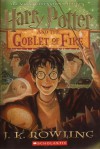Lady Danielle
Brace yourselves, readers. You're entering a blog with belligerent rants/reviews, chaotic writings, incompetent; pointless fangirling... and, oh yeah, GIFS. Fuckloads of them... did I also mention some swearing? I'm an eighteen-year-old girl majoring in Theatre Arts. I may not be an excellent writer, but gosh, I love doing it.
Received their Hogwarts letter (Followers)
Currently reading




Born of Illusion (Born of Illusion #1) by Teri Brown

Anna Van Housen is an illusionist who has the ability to feel people's emotions, communicate with the dead, and foretell the future. But these are secrets she keeps hidden, especially from her mother, Marguerite Van Housen. It's hard for Anna to converse with her mother because Marguerite is a very jealous woman who hates when the spotlight isn't on her. Give a small praise to Anna and Marguerite with shoot her a daggering stare. Give Anna your undivided attention -- or maybe a standing ovation -- and Marguerite will do her best to humiliate her very own daughter in front of everyone. A lot of readers will have a problem with this and even hate Marguerite, but I can't help loving her. Teri Brown's characters are so convincing and well createdthat it's hard for me to feel just one emotion. Even the unimportant characters holds a special place in my heart: Mr Darby, Anna's grouchy neighbour. He may put up an I-hate-everyone front, but when you actually get to know him he's an enigmatic, humorous old man who loves to invent things. Cynthia Gaylord, Anna's young; hopeless 20-year-old friend. She has an eye for the supernatural and is very energetic when it comes to it. You won't miss her at a séance (which you'll be able to read as well as experience in Born of Illusion).
The world-building Brown has crafted will leave you breathless and desperate to get your hands on the sequel. Born of Illusion takes place in 1920's New York. But this isn't a book based on flappers (though they do make their appearances here and there, of course); rather, this is about Anna Van Housen coming to terms with her abilities and her past. Since the age of thirteen, Anna has been breaking her mother out of jail. Now at sixteen, she has to assist her mother in holding fake séances and magic acts. Even though her mother is a sham, it doesn't stop her from trying to be the greatest medium that ever lived. All of this is very difficult for Anna due to the fact that these séances isn't just staged stunts her mother pulls or fake chants she does to "call upon the spirits of the dead". The dead actually communicates with Anna and she's tired of getting sick to her stomach feeling the emotions of the grieving people attending the séances with false hope and desperation.
These aren't the only problems Anna has to face 
Is Harry Houdini really Anna's illegitimated daughter or is Marguerite lying about this for publicity? It's very confusing for Anna and she can't help but feel as though she is because of her abilities. Are they really from Houdini -- the greatest magician that ever lived? To add on to her problems, Cole Emerson Archer arrives and, mysteriously,Anna's abilities enhances. Usually whenever Anna sees the future, it's usually visions of The Great War, the Spanish Influenza, or the sinking of the Titanic. Now these visions are of her and her mother in peril. Could these snippets of horror be easily brushed off and passed as nightmares, or is it something that should be taken seriously?
Born of Illusion was exactly what I've been craving to read. I've grown tired of reading Dystopian novels, so this book was a breath of fresh air. I've fallen in even more in love with Historical Fiction after reading many great; new works (Out of the Easy, The Diviners, and Born of Illusion). This book focuses on the occult during the prohibition era. This leaves you thinking 'do spirits exist?' 'are there people who can actually communicate with the dead?' 'is all this just a hoax only used for entertainment?' For me, I grew up interested in the supernatural. So reading this was very entertaining. You can tell Teri Brown has done a great job with her research and I'm really looking forward to reading the sequel. There's one thing I'm really anxious about: Harry Houdini and how this is all going to turn out in the end because Harry Houdini died on October 31, 1926 and this is set in the 1920's. Is it in the early 1920's or mid 1920's? Is Houdini going die in the next book? Questions, questions, questions.... If you read The Diviners and wondered what book to read next that's similar and would give that feeling of being in the 1920's surrounded by magic then this book is definitely for you. I'm floating on hearts!
Also, I felt that the mystery element 'who did what?' was poorly played out. I found it extremely obvious and face palmed when Anna had no idea on who the culprit was. Oh well, I'm not going to hold this little problem against the wonderful story in general. It is obvious I simply adore this era, and I love even more that authors like Libba Brayand Teri Brown adds a paranormal twist with magic, spirits and horror in their highly praised work.
 2
2





